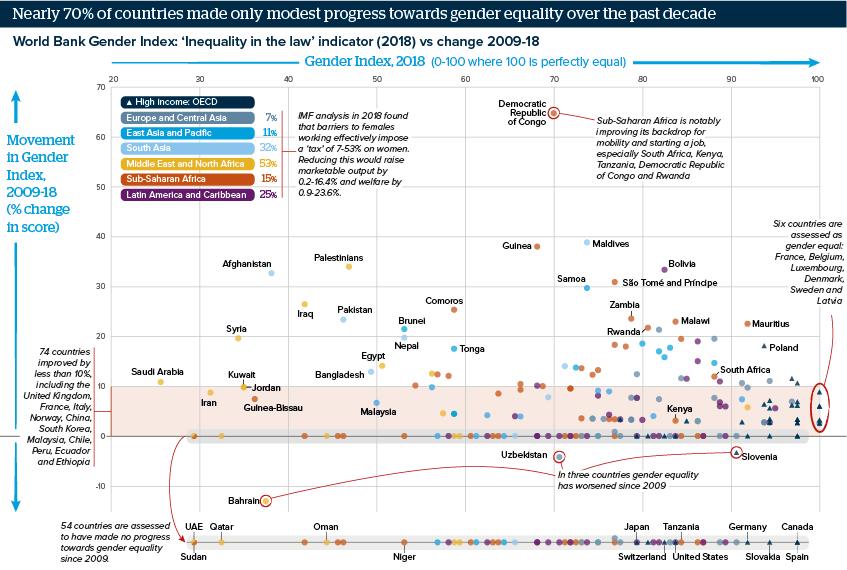Gender friendly business and law policies need impetus
Gender equality is a Sustainable Development Goal, but most countries lag regardless of income and political stability
Source: World Bank’s Women, Business and the Law database
Outlook
McKinsey estimates that progress in gender equality could raise global GDP by 12 trillion dollars by 2025 if countries implement ‘achievable’ reforms and 28 trillion dollars if countries pass all possible reforms.
However, World Bank analysis in February 2019 suggests that the average business and law environment for females in high-income OECD countries has improved by just 4% since 2009. Progress on pay, pensions and childcare continues to stutter.
Supporting ‘catch-up’ growth, the environment in South Asia, East Asia and Sub-Saharan Africa has improved by 10% or more, with workplace harassment and gender violence laws improving the potential for women to start a job and have rights when married.
Impacts
- The Peterson Institute analysed firms in 91 countries, finding that women in senior roles boost profit; quotas alone are less effective.
- The United States, United Kingdom, Japan and Germany made little or no progress on pay or childcare in 2009-18; policy targeting is key.
- Low- and low-mid-income nations equal high-income ones for mobility and running a business but lag on pay and childcare -- limiting growth.
- Sub-Saharan Africa ranks above South Asia, especially on pay and childcare; India, Bangladesh and Pakistan lag in these areas.
See also
- Gender gap in technology will take decades to trim - Sep 10, 2019
- Regional gender gaps face policy conflict - Jul 11, 2019
- Growing gender parity will aid global growth prospects - Aug 4, 2017
- More graphic analysis
